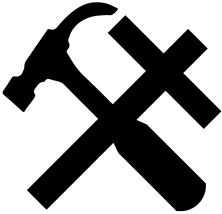Reading books is helpful, but remembering and putting into practice what you’ve learned are equally important. There’s no sense in learning something but not applying it (especially true when it comes to the Bible, see Luke 11:28).
I’ve struggled for a long time to figure out the best way to track things I’ve read and store the life-changing pieces of text to reference later and continue to apply. I love what John Piper says about sentences.
What I have learned from about twenty-years of serious reading is this:It is sentences that change my life, not books. What changes my life is some new glimpse of truth, some powerful challenge, some resolution to a long-standing dilemma, and these usually come concentrated in a sentence or two. I do not remember 99% of what I read, but if the 1% of each book or article I do remember is a life-changing insight, then I don’t begrudge the 99%.
Well-written sentences that deliver a thought in a new way can change the trajectory of your life.
Here’s my process of maximizing a book’s impact, making sure I remember (and apply) the 1% of the book that was most significant (and any percent beyond that is just gravy).
1. Read a book.
Without this step, everything else falls apart.
2. Review the book.
Do this as soon as possible. It’s really hard to review a book you finished weeks ago. The good floats to the surface and things you didn’t agree with or disliked tend to dissipate (at least that’s the case for me, as an optimist. Perhaps it’s the opposite for pessimists). Write a concise review (either in the front cover of the book, or digitally, as I’ll suggest shortly) to reference later.
3. Use a standard format.
This is helpful so you can see why some books are 1-stars and why others are 5-stars (or 0-stars and 100-stars, depending on how crazy you’re getting with your own rating system). I use the following format (with explanations if need be in parentheses)
Title:
Author:
Pages:
Owned: (So I know if I have it on Kindle, iBooks, physical or if I borrowed it from the library or a friend.)
Summary:
Main idea: (A one thesis, if possible–a summary of the summary, if you will)
Reason for _ stars: (I’ll fill in the star number here where the _ is, and then I’ll say what kept it from being a 5-star book or what made it a 5-star book.)
? of 5 stars (I copy the amount of stars I gave it (and because I can’t make half stars with this icon, I’m more decisive. There’s no reason for this, I just like seeing stars.)
Favorite Quotes: (See the next point for an explanation here.)
(Bonus tip: I wrote about using text-expanders to save your fingers. I save this book review format as the shortcut bkrv [as in book review] so I don’t have to remember each piece of the review. I just type the shortcut and fill in the blanks.)
4. Copy highlights, book notes and to do’s from the book.
If I read a digital copy, I use this process to retrieve my notes from Kindle or iBooks. If I read a physical copy, I type up what I underlined, marked or highlighted. This is tedious, but it’s so worth it. It normally takes around 30 minutes for me to get through, and I probably have about 50+ highlights in a book.
5. Store everything in Evernote.
I have a Books notebook in Evernote that I save each of these reviews in for later reference. I don’t have to use any tags, because I can simply search for whatever topic I want later to find a quote or to see what I said about a book when someone asks for recommendations. Being able to search for any word or topic in Evernote makes my review catalogue 100x more valuable. Here’s more on how I fully utilize Evernote.

Jman – I do a similar outline but I type everything into a word doc which get annoying and sometimes deters me from writing down any notes. I need to start taking advantage of my notes in kindle.
DJ–Good to hear from you! I used to put everything into word documents, but I rarely referred back to them. I’m hoping having them in Evernote will increase my likelihood of looking back over them.
This is Great! I haven’t read your blog since you started it a while back, and I’m loving it man. I have multiple notes on my desktop overflowing with books that I’ve read, and feel like I’m losing touch with. I think this is my summer project before I start work!
Great to hear from you, Victor! I had the same problem. Hopefully organizing them and tossing them into Evernote will help get things straightened out. Sounds like a solid pre-work plan!
I’ve already started, and it’s almost freeing! Thanks again. I hope all is well with you.